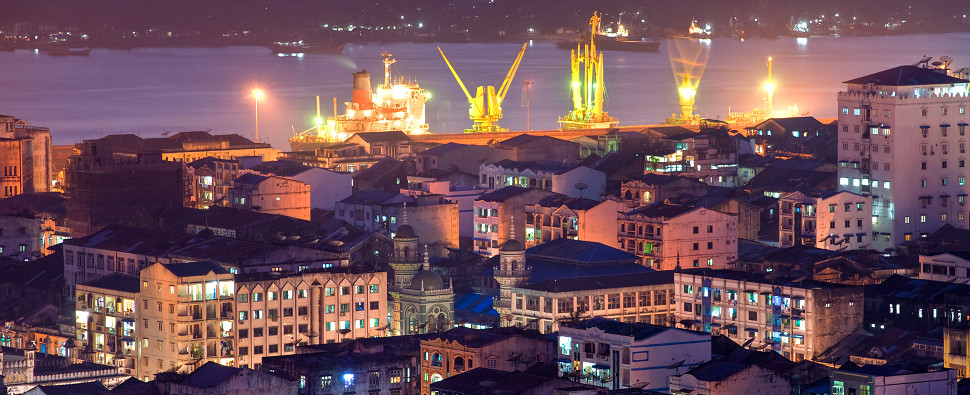-
Myanmar: US companies to lead new wave of foreign investment, yet reputational risks will remain high
-
Following last week’s landmark decision by the United States to end sanctions on Myanmar and reinstate preferential tariffs, Access Asia is anticipating a new wave of foreign investment led by medium-sized American companies. Yet, reputational and regulatory risks will remain high as many sanctioned individuals and entities remain problematic partners.
While many large US corporations such as Coca-cola, General Electric, Ford and Chevron eagerly entered the country after sanctions were eased in 2012, many others held back by the costs and risks of operating in compliance with US sanctions. One such company was Harley-Davidson, which sent representatives to Myanmar within hours after Obama’s announcement, Access Asia has learnt.
While US companies will lead this new investment push, the benefits of lifting sanctions will also extend well beyond Myanmar-US trade and investment. Domestic and non-US foreign investors, for example, will now gain better access to banking and trade finance through major international banks as a result of less adverse policies that will emerge (the risk of massive fines for sanction violations previously made lenders extremely cautious in dealing with Myanmar-related transactions and financing.) This should also lead to more foreign investment in the country’s nascent banking sector, particularly from US and more conservative Western lenders. Access Asia also sees great foreign investment potential in microfinance, a sector that has seen impressive growth and foreign investment interest elsewhere in Southeast Asia, particularly in Cambodia. Notably, Cambodia’s burgeoning and relatively well-governed microfinance sector has resulted in rare consultation between the National Bank of Cambodia and the Central Bank of Myanmar.
From a legal standpoint, sanctions will remain in place until President Obama issues a new Executive Order to terminate the national emergency imposed on Myanmar in 1997, which provides much of the legal authority for sanctions on Myanmar, as well as revoking the Burma Executive Orders. This could occur in the coming days, yet restoring preferential trade tariffs under the Generalized System of Preferences requires a 60-day Congressional-notification period. Once restored, this will provide a significant boost to Myanmar’s export sector, particularly garments and textiles.
From a political standpoint, Washington’s decision is a political victory for the country’s newly elected National League for Democracy (NLD) government led by de-facto leader Aung San Suu Kyi. The move represents the government’s clearest achievement since taking power in April, underscored by the fact that Obama announced the decision while meeting with Suu Kyi in Washington last week. Nevertheless, there remains daunting challenges for the NLD that are also challenges for foreign investors, including a long list of socio-economic woes such as wide-spread poverty, crumbling infrastructure, a critical energy deficit, rampant corruption, a sclerotic bureaucracy, simmering communal tensions and chronic ethnic conflict. Yet, assisted with the removal of sanctions, many of these woes can be improved through foreign investment, closer US engagement, and economic development.
Even with the lifting of US sanctions, reputational and regulatory risks will remain substantial for foreign investors choosing a local partner. Military-owned conglomerates like the Union of Myanmar Economic Holdings Limited (‘UMEHL’) and Myanmar Economic Corporation (‘MEC’) have a strong grip in many lucrative markets in Myanmar yet have some of the most problematic business practices. UMEHL and MEC have been accused of dealing in arms with North Korea, have been implicated in human rights abuses against citizens and ethnic minorities, and are widely regarded as engaging in corrupt practices.
While UMEHL and MEC are problematic partners for foreign firms, the two military-owned entities share many similarities with major Myanmar firms that operated with similar disdain for global business practices. Both UMEHL and MEC were identified along with Yuzana Group and Zaykabar Company for their complete lack of transparency by the Myanmar Centre for Responsible Business in their third annual Transparency in Myanmar Enterprises report. The recently released report notes that these firms lack organisational transparency, grievance mechanisms for human rights complaints, and do not have any anti-corruption commitments or social and environmental policies.
While sanctions are set to end, foreign companies should still be aware of the reputational, political exposure and regulatory risks involved with partnering or doing business with previously sanctioned individuals and entities. Many Myanmar businesses that formed under, and flourished because of, military rule have failed to reform their corporate governance to adjust to Myanmar’s new business and political environment. Access Asia sees such antiquated business practices as highly problematic to international firms looking for local partnerships. Comprehensive due diligence should be a standard pre-transaction procedure while ongoing reviews should be undertaken as a key component to mitigate against these risks.
* * *

